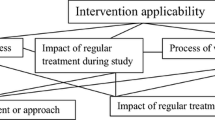Abstract
Hearing Voices peer support groups allow people to construct understandings of their voices. The groups focus on supporting voice hearers in reducing distress associated with voices through an array of strategies. This study sought to describe the voice management strategies shared in a hearing voices peer support group within a Brazilian public mental health service. In this qualitative study we recorded 10 group meetings. Transcripts were coded and analyzed using thematic analysis. The findings indicated five themes, described as: (1) strategies used to avoid distressing experiences; (2) strategies for managing the voices; (3) strategies for seeking social support; (4) strategies for creating a sense of belonging in the community; and (5) strategies related to spirituality and religiosity. These strategies appear to be essential in helping voice hearers feel less alone, reducing the amount of distress associated with hearing voices, and developing coping strategies. These groups provide people who hear voices with the opportunity to share their stories with peers in a group setting, construct new understandings about the experience, and learn strategies for managing their voices. Accordingly, there are great possibilities for the use of these groups within mental health services throughout Latin America.
Similar content being viewed by others
References
de Leede-Smith S, Barkus E. A comprehensive review of auditory verbalhallucinations: lifetime prevalence, correlates and mechanisms in healthy and clinical individuals. Front Hum Neurosci. 2013;7:367.
Larøi F, Sommer IE, Blom JD, Fernyhough C, Ffytche DH, Hugdahl K, et al. The characteristic features of auditory verbal hallucinations in clinical and nonclinical groups: state-of-the-art overview and future directions. Schizophr Bull. 2017;38(4):724–33.
Northoff G, Qin P. How can the brain’s resting state activity generate hallucinations? A ‘resting state hypothesis’ of auditory verbal hallucinations. Schizophr Res. 2011;127:202–14.
Oulis P, Gournellis R, Konstantakopoulos G, Matsoukas T, Michalopoulou PG, Soldatos C, et al. Clinical dimensions of auditory hallucinations in schizophrenic disorders. Compr Psychiatr. 2007;48(4):337–42.
Kelleher I, DeVylder JE. Hallucinations in borderline personality disorder and common mental disorders. Br J Psychiatry. 2017;210(03):230–1. https://doi.org/10.1192/bjp.bp.116.185249.
Sommer IE, Kleijer H, Hugdahl K. Toward personalized treatment of hallucinations. Curr Opin Psychiatry. 2018;31(3):237–45.
Lieberman JA, Stroup TS, McEvoy JP, Swartz MS, Rosenheck RA, Perkins DO. Effectiveness of antipsychotic drugs in patients with chronic schizophrenia. N Engl J Med. 2005;353(12):1209–23.
World Health Organization. (2016). mhGAP intervention guide for mental, neurological and substance use disorders in non-specialized health settings: mental health Gap Action Programme (mhGAP), version 2.0. Geneva: WHO. https://apps.who.int/iris/handle/10665/250239.
Davidson L. (2016). The recovery movement: Implications for mental health care and enabling people to participate fully in life. Health Affairs, 2016; 35(6): 1091–1097.
Davidson L. Recovering a sense of self in Schizophrenia. J Pers. 2019;1–11. https://doi.org/10.1111/jopy.12471.
Styron T, Utter L, Davidson L. The hearing voices network: initial lessons and future directions for mental health professionals and Systems of Care. Psychiatr Q. 2017;88(4):769–85. https://doi.org/10.1007/s11126-017-9491-1.
Dillon J, Hornstein GA. Hearing voices peer support groups: a powerful alternative for people in distress. Psychosis: Psychol Social Integr Approaches. 2013;5(3):286–95. https://doi.org/10.1080/17522439.2013.843020.
Corstens D, Longden E, McCarthy-Jones S, Waddingham R, Thomas N. Emerging perspectives from the hearing Voices Movement: implications for Research and Practice. Schizophr Bull. 2014;40(suppl4):285–94. https://doi.org/10.1093/schbul/sbu007.
Bien C, Reis GC. The hearing voices movement: mental health advocacy and recovery. Cadernos Brasileiros de Saúde Mental. 2017;9(21):79–88. ISSN 1984–2147.
Fusar-Poli P, Bruno D, Machado-de-Sousa JP, Crippa J. Franco Basaglia (1924–1980): three decades (1979—2009) as a Bridge between the italian and brazilian Mental Health Reform. Int J Soc Psychiatry. 2009;57(1):100–3. https://doi.org/10.1177/0020764009344145.
Tavares DH, Aldrigui LB, Ubessi LD, Almeida MD, Silveira PB, Jardim VMR. As vozes que voltam: dos encontros com as pessoas que ouvem vozes. J nurs Health. 2018;8:1–8.
Conway T. Hearing Voices: an experience of Group Work in a medium secure Psychiatric Hospital. Practice. 2004;16(2):137–45.
Braun V, Clarke V. Successful qualitative research: a practical guide for beginners. London: Sage; 2013.
Corradi-Webster CM, Rufato LS, Leão EA, Bien C, Reis G. Grupo de Ouvidores de Vozes: Experiências de um grupo de suporte de pares em contexto brasileiro. Revista Iberoamericana de Psicología. 2021;14(2):85–92.
Rufato LS, Corradi-Webster CM, Sade RMS, Costa MN, Bien C, Reis G. Suporte de pares em saúde mental: grupo de ouvidores de vozes. Cad Bras De Saude Mental. 2021;13(36):156–74.
Braun V, Clarke V. Conceptual and design thinking for thematic analysis. Qualitative Psychol. 2022;9(1):3–26.
Baker P. The voice inside: a practical guide to coping with hearing voices. P&P Press; 2009.
Turkington D, Kingdon D, Chadwick P. Cognitive-behavioural therapy for schizophrenia: filling the therapeutic vacuum. Br J Psychiatry. 2003;183(02):98–9. https://doi.org/10.1192/bjp.183.2.98.
Romme MAJ, Honig A, Noorthoorn EO, Escher S. Coping with hearing Voices: an Emancipatory Approach. Br J Psychiatry. 1992;161(01):99–103. https://doi.org/10.1192/bjp.161.1.99.
Corradi-Webster CM, Leao EA, Rufato LS. Collaborating in the trajectory of recovery in Mental Health: hearing Voice Group. Nova Perspectiva Sistêmica. 2018;27:22–34.
Castelein S, Bruggeman R, Davidson L, Gaag M. Creating a supportive environment: peer support groups for psychotic Disorders. Schizophr Bull. 2015;41(6):1211–3. https://doi.org/10.1093/schbul/sbv113.
Author information
Authors and Affiliations
Corresponding author
Ethics declarations
Ethical Approval
This study and its procedures were approved by the Research Ethics Committee of the Faculty of Philosophy, Sciences and Letters at Ribeirão Preto, University of São Paulo.
Informed Consent
Informed Consent was obtained from all individual participants included in the study.
Disclosure statement
No potential conflict of interest was reported by the author(s).
Additional information
Publisher’s Note
Springer Nature remains neutral with regard to jurisdictional claims in published maps and institutional affiliations.
Rights and permissions
Springer Nature or its licensor (e.g. a society or other partner) holds exclusive rights to this article under a publishing agreement with the author(s) or other rightsholder(s); author self-archiving of the accepted manuscript version of this article is solely governed by the terms of such publishing agreement and applicable law.
About this article
Cite this article
Rufato, L.S., Corradi-Webster, C.M., Reis, G. et al. Strategies for the Management of Voices Shared in a Brazilian Hearing Voices Group. Psychiatr Q 94, 243–254 (2023). https://doi.org/10.1007/s11126-023-10032-z
Accepted:
Published:
Issue Date:
DOI: https://doi.org/10.1007/s11126-023-10032-z



